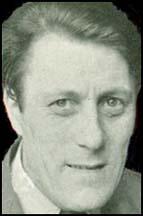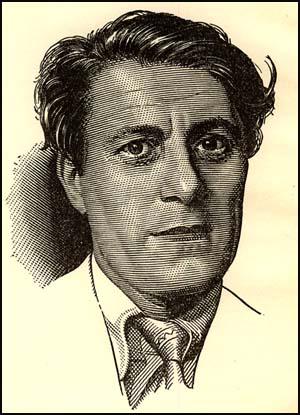Douglas Hyde

Douglas Arnold Hyde was born in Worthing on 8th April 1911. His family moved to Bristol and as a young man he considered joining the Methodist ministry.
In 1928 he heard the Welsh miner, Lewis Jones, speak about his experiences in the General Strike. It was Jones who encouraged him to join the Communist Party of Great Britain (CPGB).
Hyde became a dedicated opponent of injustice. This included the campaign to free the American anarchists Nicola Sacco and Bartolomeo Vanzetti. He was a supporter of the Popular Front government during the Spanish Civil War. He later recalled this as "not only the most memorable and personally satisfying but the best part of my life".
In 1938 Hyde moved to Surrey and joined the local Labour Party and it was not long before he was elected to its executive. As he admitted in his autobiography, I Believed: "It was not long before I had got every likely man or woman at executive level into the Communist Party."
In September 1939, Harry Pollitt welcomed the British declaration of war on Nazi Germany. Joseph Stalin was furious with Pollitt's statement as the previous month he had signed the Soviet-Nazi Pact with Adolf Hitler. Pollitt was supported by John R. Campbell and William Gallacher, but Rajani Palme Dutt and William Rust followed the Soviet line. Pollitt was forced to resign as General Secretary and he was replaced by Dutt and Rust took over Campbell's job as editor of the Daily Worker.
Hyde joined the staff of the Daily Worker in 1940. The following year Herbert Morrison, the Home Secretary, banned the newspaper because it was not giving full support to the government during the Second World War. Hyde now was appointed to run a news agency established by the Communist Party of Great Britain called the Industrial and General Information (IGI), which sold stories to national newspapers.
On 22nd June 1941, Germany invaded the Soviet Union. The CPGB immediately announced full support for the war effort and Pollitt was reinstated as General Secretary. Herbert Morrison now gave permission for the Daily Worker to be published.
Working under the editor, William Rust, Hyde helped the sales reach 120,000 in 1948. Hyde, the news editor, later recalled: "We would sit in a room, just half a dozen of us, and talk about the political issues of the day." However, it was Rajani Palme Dutt who decided on the newspaper's policy. "When we had all had our say, Dutt would drape his arm over the arm of his chair - he had the longest arms I have ever seen - bang his pipe out on the sole of his shoe, and sum up. Often the summing up was entirely different from the conclusions we were all reaching, but no one ever argued."

In 1949 Hyde resigned from the Communist Party of Great Britain. Two years later he published I Believed (1951), which explained why he now disagreed with the policies of the CPGB. He joined the Catholic Church and started to write for the Catholic Herald.
His friend, Kevin Morgan, pointed out: "Hyde himself, moreover, was by no means a convert to the right. He never accepted the grosser logic of McCarthyism and pointedly omitted in I Believed to name names like those of that Fleet Street lift's fellow-occupants. Spending much of his time in the Third World, initially as a lecturer and roving foreign correspondent, Hyde was as surely roused by the oppression and human suffering he encountered as he had been in his Communist youth."
Hyde eventually left the Catholic Church. He was interviewed by the journalist Francis Beckett who later recalled that he "was alienated from the Catholic faith, had never found there the comradeship and care for the underdog which he had known in the Communist Party, and was much closer to his first faith than to the second."
Douglas Hyde died on 19th September 1996.
Primary Sources
(1) Kevin Morgan, The Independent (26th September 1996)
"I haven't lived two lives," Hyde wrote shortly before his death. "There has been a continuum which is the most meaningful thing to me." One expression of that continuum was his lifelong passion for William Morris. On breaking with Communism, it was Morris's utopianism and love of beauty that Hyde set against the expediency and cultural blight of Stalinism. Like Morris, he was drawn to the medieval, and his own great love of plainsong and Gothic architecture played a major part in his attraction to Catholicism.
But there was another side to Morris too, of comradeship and struggle, that Hyde came to believe had been more fully realised in the Communist Party. "Fellowship is life," Morris had written, and nowhere had Hyde found such fellowship as among his former party comrades. Beyond that was what Hyde called Morris's sense of moral outrage, an outrage briefly dimmed perhaps on Hyde's first embrace of Catholicism but ultimately proving inextinguishable.
Douglas Hyde's final years were ones of failing health borne with fortitude. More gods than one had failed him, but his courage and optimism never wavered...
In the 1950s he came to lecture at our college for would-be priests. He was hero- worshipped. A modest, unpretentious man, he was never happy on pedestals. Soon we became friends.
It was clear that Douggie's passion was social and economic justice rather than religious orthodoxy. Justice had inspired him as a Communist and it inspired him equally as a Catholic Christian.
It was because he could not swallow the political selectivity of the present Pope, who has so often treated those supposed to be on the Left so harshly, that Douggie moved away from official Catholicism. On his last hospital admission form he listed himself as an "agnostic Christian".
He was never agnostic or indifferent about injury done to others. His courage in spending, voluntarily, two and a half years in Asian prisons working for the release of political detainees was astonishing. Thousands owe their freedom today to the unpublicised work which he undertook, at real risk to his own life.
The hundreds of Christmas and birthday cards balancing on his Wimbledon mantelpiece every year were witness to his many friendships world-wide. Many came from ex-prisoners. Indeed Amnesty International owes its foundation (in 1961) in part to his example.
Literature, music, the wonders of his garden and the iniquities of our government were favourite themes for a man who knew how to speak clearly and to the point. Always his humour bubbled over and his eyes sparkled. Illnesses were brushed aside.
It was a delight to be with him a few years ago at a summer garden party for his birthday. His old comrades respected the way he had followed the star of his own conscience and were there in plenty. Phil Piratin, once one of only two Communist MPs, was at his side when it came to cutting the cake.
Douggie Hyde was an inspiration and one who really did love his neighbour as himself. A prophet as well no doubt, but one who knew how to laugh.
